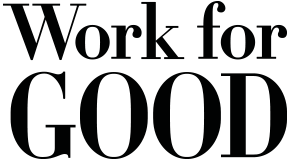[How I Work] Healthy babies, healthy Baltimore
Working at Family League of Baltimore, Gary Williams, Jr. has spent the last two years as Program Manager of Baltimore for Healthy Babies Communities, a $350,000 initiative working to prevent infant mortality and improve birth outcomes for moms.
That effort is part of the Family League’s vision of a city where every family thrives, which they work toward by supporting collaborative initiatives and building the capacity of organizations that help children and families reach their full potential. With more than 50 employees and 100 partners, the coalition’s work is aimed toward one ambitious goal: that by 2030, all children in Baltimore will be born healthy, succeed academically, graduate high school, and transition into higher education and the workforce.
My role, the short version: Mobilizing the community—citizens, service providers, and other folks—to address issues that lead to a city with more healthy babies.
My role, the long version: Overseeing an effort across two Baltimore communities to connect moms with city-wide resources to prevent infant mortality: Quality prenatal care, health insurance, home visiting programs, fitness programs, outreach around safe sleep practices and smoke-free houses, and other evidence-based support. We also rally service providers to make sure our moms know about services available, and monitor providers in the government and nonprofit sectors to ensure quality of services, providing technical assistance and coaching where needed. My other scope of work is around racial equity, co-leading a team that addresses disparities in birth outcomes.
What I’m working on now: Together with a group of 15 faith leaders, I’m helping put together a project called Precious Purple Sunday. For one day, faith organizations will dress in purple and talk at their services about taking care of the babies and children in our communities. There will be swag to give away to parishioners and other attendees, lesson plans for Sunday School classes, and more. This is our first time doing something like this, so I’m really excited about it.
My favorite way to support colleagues: We all have different reasons for sticking with something even when we’re frustrated or tired, so I always focus on understanding what brings them to work every day and what gets them excited, then building on that.
The first thing I do at the office: I always try to go deeper than “Good morning.” Our team works together closely—we even sit closely together—so I always take the first ten minutes of the day to see how they’re doing. I’m a people person, so building relationships is both important and energizing for me.
The last thing I do at the office: I find cleaning my desk de-stressing, so it helps me unwind at the end of the day. It also sets me up for the next day: I’m not a morning person, and clutter keeps me from being productive, so it helps me get right to work.
Who best fits this position: Because I’m not controlling millions of dollars, bringing people in and keeping them at the table takes rapport, planning, and flexibility. That means very strong relationship-building skills, and the ability to work with a diverse set of people; being a strategic thinker, because widespread changes require planning for two, three, or five years down the line; and the flexibility to quickly pivot and build consensus when unexpected events arise—or conflict. Because we have so many partners, we’re bound to disagree about something, so you need to be able to create win-win solutions.
How I got here: I always had an interest in community, but didn’t have the network I needed right when I graduated, so I started out as an AmeriCorps volunteer. Working with their Public Allies program, I built my personal philosophy of inclusion, relationship-building, and conflict resolution. Though my degree is in archaeology, I’ve worked in a slew of areas: public health, justice issues, community organization, leadership development for people entering the nonprofit sector, student prep for the academic community. For me, it’s paid off to keep applying my skills to new situations: Having worked in state departments, small and large organizations, for-profits and nonprofits, I can relate to all of our partners at Family League of Baltimore.
My goal for the year: I’m getting my Masters in nonprofit management and social entrepreneurship from the University of Baltimore, and my goal is to finish in the fall—if my class schedule allows. It would be great to be the first person in my family to earn a graduate degree, but it’s also helped me grow in my role. Something else I want to get more involved in is fundraising, especially on the individual giving side. I’m trying to take advantage of four professional development opportunities this year—there’s always room to learn and grow, and they’re also great for networking.
Family League of Baltimore serves as an architect of change in Baltimore by promoting data-driven, collaborative initiatives and aligning resources to create lasting outcomes for children, families, and communities. You can follow them on Facebook, Twitter, and LinkedIn.



